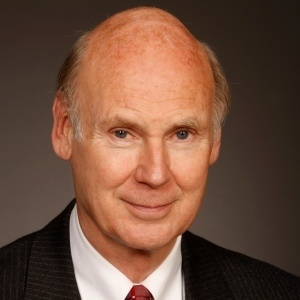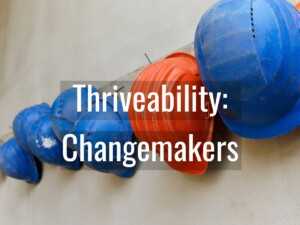Tourism’s common challenge: How do we create ‘community shared value’?

Are there needs, wants, and desires common to all (or most) individuals within your community? How might travel & tourism serve them? K Michael Haywood explores the challenge all destinations face if they wish to create ‘community shared value’.
It’s a “Good Tourism” Insight. [You too can write a “GT” Insight.]
Destinations International, the professional association for destination marketers and managers, has proposed an intriguing new concept: Community Shared Value.
But what are these values? Do they reflect a Roots & Wings philosophy? Do they evolve into a Disney-like Be Our Guest mentality?
Do they lead to, or stem from, well-reasoned WHYs that go deep to inform, guide, and create a sense of purpose for all communities pursuing tourism?
Do the ‘whys’ come from the heart and result in leadership qualities that demonstrate the “Heart of Business”?
Is it a heart intent on unleashing human magic; achieving well-being and mutual enrichment for all? Is it focused on outcomes derived from non-market activities?
Do the “Whys” dignify the ‘other’ and ensure justice for all; not just in ways that correspond with values desired by visitors, but with values that dovetail with those of the citizenry, the hosts whose hospitality is intended to result in memorable experiences?
Are those values multi-dimensional — functional, emotional, social, and life-affirming — and brought to fruition by being clearly articulated and well-integrated?
Are they values that serve to develop new competencies (a definitive ‘brain gain’) and stir imaginations that give shape and substance to purpose?
Is it a transparent purpose that gives meaning to our behaviors and lives, and informs our strategies, business models, and goals? Because, if they don’t, communities-as-destinations are bound to suffer the consequences.
Also see Paul Rogers’ “GT” Partner message
“Prioritising well-being in travel & tourism”
Contingent realities
Values matter.
Too often, though, they are limited in their expression, let alone their implementation.
Examine the documents, behaviors, and actions of those in charge of developing tourism in your community.
You’ll likely discover ambiguous versions of values and insipid explanations of the “whys”, purposes, and aspirations for the future.
Honoured more for its transactional, economic and monetary outcomes and values, tourism tends to be sought after and optimised for growth.
Tourism’s focus is often on the short-term with constant emphasis on boosting revenues and achieving efficiencies.
In such situations, the concept of community shared value is likely to puzzle operators, particularly as an innovative process, unless people are shown how tourism can provide mutual or shared benefit
With diminished priority given to the medium- and long-term, however, it’s inevitable: Innovation stumbles.
Limited effort is put into co-creating innovation priorities, empowering people to innovate, or determining how to identify and manage innovation portfolios.
Of course, every operator seeks to capture value for themselves. But if this is determined solely on the basis of profitability and ever-higher ROIs to boost shareholder value, corporate and community longevity is likely to suffer.
Factor in lame attempts to market community “dark value” without making it tangible; the inevitability of broken brand promises; negative externalities; disrespect shown to certain visitors and stakeholders, and what do you get?
The merits of “useless” (yes, there are some) instead of what is “useful”.
Value creation is said to be the foundation of business but, given today’s disruptions, it’s questionable whether the so-called logical and highly competitive approaches to value creation remain applicable.
In a convoluted world, a focus on position, resources, and opportunities no longer suffices, as businesses and destinations scramble to find legitimacy, regain their moral compass, and hope to connect with the communities in which they operate.
Also see Kristin Dunne’s “GT” Insight
“Planning tourism with purpose & love in New Zealand’s Bay of Plenty”
As a community-based industry, tourism takes place within the public square; a reality that necessitates co-operation and collaboration that will lead to the creation of community or public value.
This public value must create benefits, not burdens for everyone.
It should serve to rectify social and environmental injustices that exist throughout communities and all facets of the tourism industry.
If tourism clusters are to serve a common purpose, they must become more committed to creating social and life-affirming value on behalf of all stakeholders.
As such, there is an urgency to regain the legitimacy and organisational capacity required for more inclusive and integrated approaches to value creation, as proposed by The Business Roundtable and Future of Tourism.
Searching for ‘community shared value’ creation opportunities
Destination marketing (and management) organisations (DMOs) are not oblivious to some of these requirements.
But, does Destinations International and its members know how best to convince politicians and funding agencies as to tourism’s commitment and contributions to the creation of community shared value?
Has the premise of their arguments been fully explored?
A lot depends on whether the demand creation mandates assigned to DMOs, along with the circumscribed nature of the chief marketing officer job, remains acceptable, or needs to be totally re-thought.
Sure, some DMOs play key roles in helping visitor-serving enterprises overcome difficulties associated with the capture of economic value.
But what about creating a hierarchy of value for communities?
Surely this could be achieved through more effective utilisation of network effects and brand strength, leading to more cooperative and shared value creation.
Witness the compounding of value when communities develop strong neighborhood policies and strategies (e.g. Toronto); or, when business enterprises commit to sourcing locally and engage in circular economies.
The uniqueness of place along with availability of sufficient and well-designed physical and social infrastructures goes far in creating shared community value.
So too is a willingness to enter into partnerships that seek to co-ordinate, co-create, and bundle offerings that add to the power of pull (access, attraction and achievement) and advance the common values to be derived from tourism.
Also see K Michael Haywood’s “GT” Insight
“Smart clusters: How destinations can organise for a better future”
Collective or community shared value is not simply an economic construct, but a value designed to energise and celebrate the social and sentimental fabrics of communities and their natural and nature-based resources.
It is comforting to know how many communities are showing concern for our fragile endowment; well-enhanced through compassion and conscientiousness; cooperative and collaborative behaviors; competency and capabilities.
But efforts to create value depend on how we choose to value nature, value culture, value community, and value our desire for engagement and connection.
Overall, value creation can be a momentous community-wide enterprise if it exhilarates civic spirit (evidenced by the work of New York’s Design Trust).
And if it promotes an entrepreneurial spirit which can culminate in a flow of social and economic innovativeness as exemplified in Fogo Island and the Town of Totnes.
Civic and entrepreneurial initiative represent the main drivers of destination economies; clearly evident when (community and organisational) culture and creativity lead to memorable visitor (and host) experiences and value-driven innovations.
Consider, for example, Rwanda’s commitment to engage in tourism revenue sharing.
Also see Edwin Magio’s “GT” Insight
“Africa must put communities, conservation at the centre of recovery”
As interest in value creation through high-ambition tourism coalitions and clusters grows, we are witnessing progress towards stakeholder primacy via pro-social approaches that have a common mission or common purpose.
Community shared value will grow and become better integrated so long as it is delivered in accordance with ethical and moral values.
In other words, value creation through values; conscious tourism; dynamic approaches to teaching about values; and our desires for rootedness and community innovation; a lived Roots & Wings philosophy.
As a whole, these broader interpretations and realisations of value are closely aligned with civic tourism and the development of civic and civil economies that can give a tremendous boost to civic pride.
If only they could now be included in the prevailing theories of private and public economic value, including this conceptual framework for value creation in tourism.
In practice this is more likely to occur as substantive shifts in power relationships, and an evolution of capitalism, take root.
All of which are being revealed through renewed interest in social goals, corporate or community statesmanship, an uptick in CEO activism (exemplified by the outdoor industry), and commitments by companies to be a force for good.
Also see Jim Butcher’s “GT” Insight
“Tourism’s democratic deficit”
Realising ‘community shared value’ creation
Given the crosswinds, the ability to create community shared value will remain a strenuous endeavor unless and until we determine who and what has value.
Indeed, there is no such thing as a value unless people are involved.
Value, after all, is attached to people, so its determination requires deep inquiries and a constant asking of questions.
The key is to look beyond the average person, to all who live under different circumstances, to the point of recognising individuality and the need to personalise value.
As an inside-out phenomenon, progress and possibilities become clearly defined and anchored when win from within mentalities develop.
With participation in its development throughout our tourism clusters, our communities are more likely to emerge and remain compelling; our hospitality inspiring; and, our approach to sustainability comprehensive.
This will require collaboration and new approaches to creative thinking that is focused on creating value — fair, meaningful, and equitably-shared value — that hopefully will lead to design activism and co-design opportunities.
Whatever the decisions and actions taken in regard to creating shared community value, it is essential that they pass the test of being desirable, feasible, and viable.
Also see Peter Richards’ “GT” Insight
“The most important colleagues in a community-based tourism project”
This requirement will necessitate providing the right people with strategic, operational, and financial discretion; new frameworks for integrated value reporting; and, better-adapted versions of the Balanced Scorecard that truly measure the objectives and key results (OKRs) of communities, not just corporations.
In sum, realising community value is a matter of beginning again as everyone commits to acting justly and boldly in order to create inspiring and astonishing people and places, performances and experiences that deliver immense value.
Such a mandate need not seem overwhelming if emphasis is put on rethinking and improving a range of cluster initiatives, governance and policies, and working more collaboratively to restore the honour, identity, and integrity of our destinations.
As a community-involving challenge, the work ahead is immense.
Community shared value has to be meaningful, provide direction, and be evident throughout relationships.
It has to be demonstrated in messaging and tone and in guiding transformation.
Community shared value, so long as it is coherent, credible, and consistent, couldn’t be more on the Up & Up.
Good luck!
Featured image (top of post): A common challenge. Image by sasint (CC0) via Pixabay.
About the author

K Michael Haywood is Professor Emeritus, School of Hospitality, Food and Tourism at the University of Guelph in Ontario, Canada. Prof Haywood has recently written an e‑book “Astonish, Smarter Tourism by Design”. Find Michael on LinkedIn.





